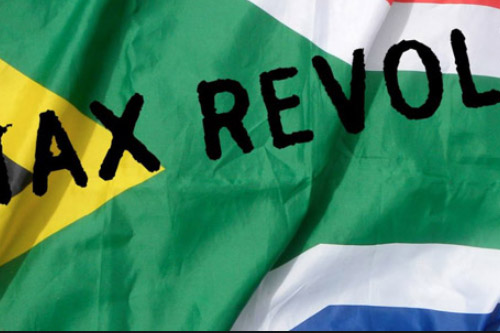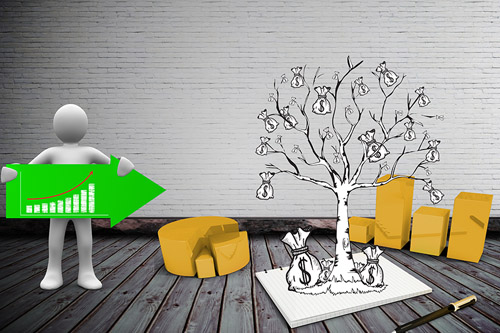The Institute of Race Relations (IRR) has warned that South Africa’s tax base is nearing a tipping point as the government increasingly looks for new ways to collect revenue.
In a memorandum sent to president Cyril Ramaphosa earlier this month, the IRR said that the government’s increased revenue pressure on taxpayers was a form of ‘citizen abuse’ and that more people would look to a form of tax revolt to escape the increasing costs.
Experts have highlighted that, due to South Africa’s tax laws, SARS’ collection capabilities, and the way VAT and other taxes are ingrained into so many things, it’s impossible for South Africans to stage a full tax revolt – ie, withholding tax from government. However, smaller forms of tax revolt have already been demonstrated, such as the refusal to pay e-tolls.
In this line, the IRR pointed to the high number of South Africans who have simply left the country – a fact bemoaned by Treasury, as it loses out on tax revenue from high-net worth individuals.
The group said that South Africans who remain in the country will increasingly turn away from government and its services, instead relying on their own efforts and communities.
“Diminishing confidence in the government, as your best tax advisors have already advised, translates directly into lower government revenues. But we don’t think this is the end game.
“Rather, we think that further slippage in the legitimacy of the state will see communities begin to engage in a tax and investment revolt which is something that that government has not yet experienced on any significant scale.”
The IRR said that this revolt will manifest in a number of ways, including:
- Taxpayers and ratepayers circumvent the government by paying dues into trust accounts or third parties and then finance their own service delivery and community-building efforts;
- The private sector sets up its own initiatives to address social problems such as crime, deficient healthcare and education. This is funded by donations which is revenue diverted away from the state;
- Communities completely cut government out of their lives – relying on grid-generated electricity and building their own schools. They will then stop paying the state for these services;
- Taxpayers lobby government for rebates where they have been forced to pay above their stipulated taxes for services.
Professional services firm PwC has warned that South Africa is relying too heavily on income and direct taxes – most of which are coming from a declining base of taxpayers.
The firm noted that personal income taxes are collected from an increasingly small pool of taxpayers.
“It is estimated that just 25% of those who pay income tax pay 80% of all personal income tax that is collected.
“Over the past few years, a smaller proportion of taxpayers has become responsible for an increasingly large portion of total personal income tax payable.”
Tipping point
The IRR’s warning comes amid the South African National Road Agency’s (Sanral’s) push to obstruct the vehicle licence renewal of motorists with outstanding e-toll debts.
In a letter delivered to the agency, the IRR said that the blocking of licences would stand to cause economic disruption, undermine South Africa’s prospects for recovery, and place an even greater tax burden on distressed households and businesses.
“IRR research shows the tax burden on South Africans has risen to the highest levels in the history of the country and that many families pay more than half their income towards tax levies and secondary and tertiary taxes,” it said.
“The IRR warns that a large proportion of households have reached a point of crisis, with many no longer able to afford basic services, foodstuffs and school fees, or to settle their debts.”
Instead of seeking to extract even more money from households, the IRR said that government must move towards introducing structural reforms, and remove corrupt officials from the public service and prosecute them and their enablers in the private sector.
“Motorists who are denied their vehicle licences because of outstanding e-toll debts should reach out to the IRR so that we can use the information to put pressure on the presidency and on politicians to intervene and stop such abuse of citizens.”
Article: Business Tech





